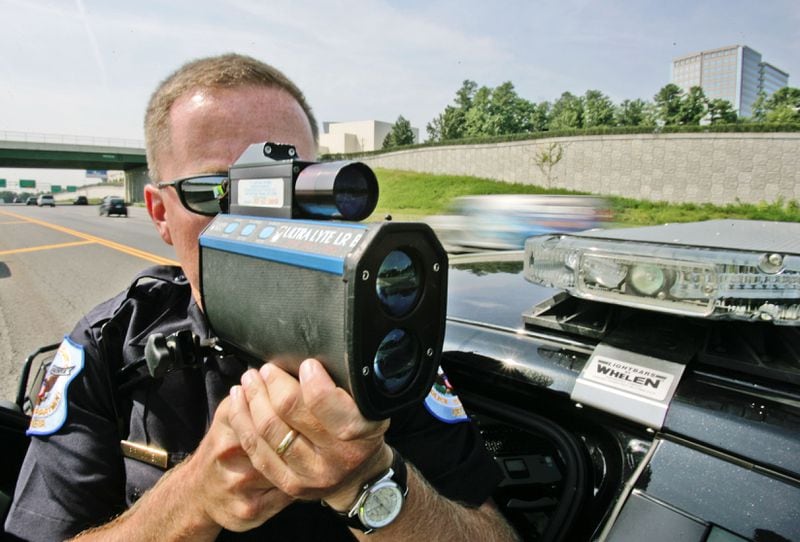A number buried in a recent bureaucratic and government-policy heavy state audit suggests that a lot of lead-footed out-of-staters are giving Georgia the raspberry when it comes to its Super Speeder law.
Credit: James Salzer
Credit: James Salzer
Georgia's Super Speeder statute was approved in 2009 and tacks an extra $200 fine onto a ticket for anyone convicted of speeding at 75
mph or more on a two-lane road or at least 85 mph on a larger highway.
Besides slowing drivers down, the original purpose was to raise money for trauma medical care, something supporters said was particularly lacking in rural areas along the state's busy interstates, where plenty of bad wrecks happen.
Then-Gov. Sonny Perdue estimated the law would raise about $23 million a year. The state estimates it gets about $20 million from the extra fines, although the Department of Audits and Accounting report out in September put it at closer to $12 million.
The audit report was about the state's record - in some cases good, some cases not so good - of collecting debts the government is owed. It said over the last four years, the state has run up $10.5 million in past-due Super Speeder fines.
Now the state hasn't always helped itself in that regard, with sometimes haphazard record-keeping.
But auditors say the biggest scofflaws are drivers passing through. Fast. Very fast.
The report says the Department of Driver Services collection efforts are limited to two letters and the revocation of drivers licenses for those who don't pay the fine within 120 days. "It does not use private collection agencies or report to credit bureaus," the report says.
The problem with that is the report says 75 percent of the accumulated debt is owed by out-of-state drivers, for whom a license suspension isn't much of a threat since they don't have a Georgia license anyway.
The agency responded to the audit thusly, "DDS is in agreement with the points addressed and look forward to working with you to enhance the state's ability to maximize the non-tax debt collection process. DDS considers it to be our fiduciary responsibility to ensure that all fund due to the state are collected in a responsible and efficient manner."
Agency officials say they surveyed other states with similar fines and found that Georgia has a slightly better collection rate. DDS said 83 percent of the uncollected revenue is owed by lead-footed out-of-state types.
Super Speeder was just one of the areas where the audit said the state has left money on the table.
Big money is involved. The state collects about $1 billion a year from fees, permits, licenses, penalties, etc.
In 2002, 2004, and again in September, auditors found deficiencies in state agencies' efforts to collect money the state is owed.
"We were unable to determine the potential return on investment of additional debt collection activities due to the lack of information regarding debt owed to the state," the audit report says. In other words, it couldn't figure out how much the state could make if they fixed debt collection problems because they can't figure out how much the state is actually owed.
The audit found that there are no uniform statewide collection policies and procedures, no requirement that agencies report how much they are owed and the chances of collecting it, limited sharing of data by agencies, limited use of private collection agencies, inconsistent access to and use of standard debt collection tools, etc., etc., etc., ... you get the picture.
"Compared to other states who have taken steps to improve debt management practices, we have numerous areas in which improvements can be made at the state and/or entity level," the audit says.
About the Author







